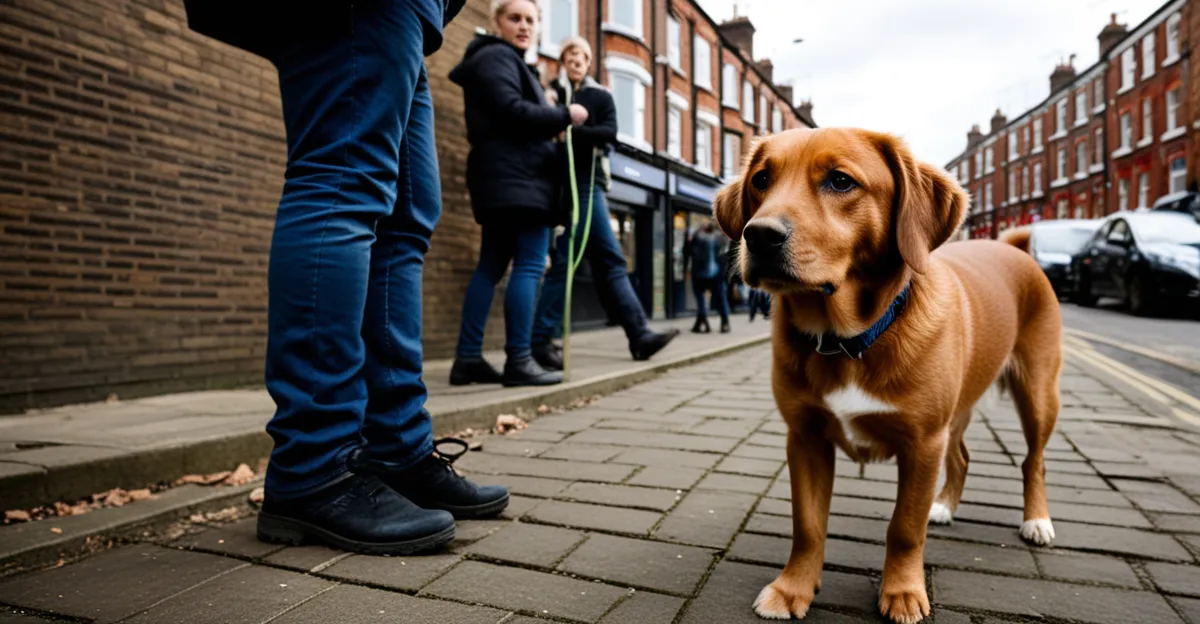Prioritising Pet Health and Happiness in Urban UK Settings
Balancing pet well-being with the constraints of city life requires intentional adjustments. Urban pet owners face unique challenges such as limited space, irregular routines, and environmental stressors, all of which can affect pet happiness UK. To maintain urban pet care standards, focus on creating a secure, stimulating environment indoors. Introducing varied toys, puzzle feeders, and short, frequent play sessions helps support both mental and physical health.
Adapting daily routines involves monitoring exercise needs carefully. Urban pets often miss out on natural explorations, so structured activities become vital. Incorporating short walks in designated green spaces is beneficial, but owners must be mindful of hustle and pollution impacting animal stress levels.
This might interest you : What Are the Most Unique Pet Trends Emerging in the UK?
Emotional well-being is another pillar of thriving urban pet care. Recognising subtle signs of anxiety or depression is key. Providing consistent attention, companionship, and mental stimulation reduces boredom and behavioural issues. Ultimately, fostering an environment tuned to the demands of city life enhances pet happiness UK, ensuring pets not only survive but flourish within urban settings.
Coping with Limited Space and Exercise Restrictions
Small space pet care requires inventive solutions to meet the activity demands of UK city pets. Urban pet exercise can’t rely solely on outdoor walks, especially in limited or busy environments. Incorporating structured indoor play with interactive toys stimulates both physical and mental fitness. Puzzle feeders and fetch games in hallways can extend activity without needing large areas.
Also to see : What are the essential supplies for new pet owners in the UK?
Utilising safe urban green spaces and dedicated dog parks is essential for boosting outdoor exercise. Frequent visits to these areas help compensate for confined living quarters. When selecting breeds or species suited for urban settings, owners should consider energy levels and adaptability. Smaller, less active pets often thrive when space is restricted, while high-energy breeds may need extra effort to prevent restlessness.
Balancing adequate exercise and environmental constraints promotes pet well-being. Consistency in routine helps urban pets adjust and maintain health despite spatial limitations. Carefully tailored activities support their physical stamina and emotional stability, vital components of urban pet care and overall pet happiness UK.
Navigating Noise, Pollution, and Environmental Stressors
Urban environments introduce specific pet stress factors that can impact overall well-being. Common sources include urban noise pets endure, such as traffic, construction, and crowded spaces. Exposure to constant loud sounds can elevate anxiety, disrupting pet happiness UK. Recognising signs like trembling, barking, or withdrawal helps owners address distress promptly.
Pollution is a significant concern for pets in UK cities. Air contaminants and particulate matter can provoke respiratory issues and affect long-term health. Minimising pollution pets UK encounter means choosing walking times with lower traffic and avoiding busy roads. Indoor air purifiers and ventilation reduce pollutants at home, supporting urban pet care.
Soothing anxious pets involves creating quiet refuges away from noise. Consistent routines and positive reinforcement build confidence amid environmental unpredictability. Using calming products, such as pheromone diffusers or gentle music, can further ease distress. Combining these strategies leads to a healthier, happier pet environment, essential for managing urban challenges effectively.
Accessing Pet Care Facilities and Social Opportunities
Access to quality pet healthcare UK cities is crucial for maintaining pet well-being amid urban challenges. Urban residents can find a range of pet facilities urban including veterinary clinics, emergency services, and specialised care providers. Identifying trusted local vets ensures prompt responses to health concerns, while emergency care services cater to urgent needs, safeguarding pet happiness UK in unpredictable situations.
Beyond medical care, pet-friendly services such as groomers, sitters, and daycares enhance urban pet care by addressing routine grooming, supervised activity, and companionship. These services support pet mental stimulation and emotional well-being by easing daily stresses urban environments can impose.
Promoting pet socialisation UK involves integrating outings to community parks, pet events, or arranging playdates, which are essential for behavioural development. Proper socialisation helps urban pets build confidence and reduces anxiety induced by city stimuli. Engaging with local pet networks also provides owners with valuable advice and shared experiences, facilitating holistic urban pet care. Together, these elements ensure a healthier, happier pet adapted to city living.







